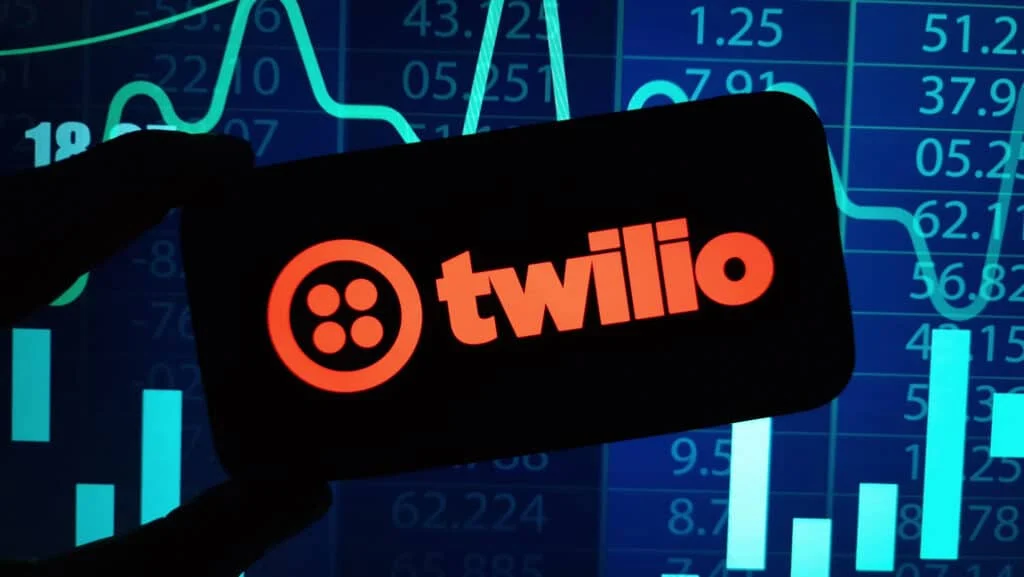Analyst(s): Keith Kirkpatrick
Publication Date: July 9, 2025
Twilio released its annual State of Customer Experience Report, which was derived from a global survey of more than 7,600 Twilio customers and 600+ business leaders in 18 countries. The report focuses on the latest trends in AI, data, trust, privacy, and personalization, and it found disparities between technology utilization, customer trust, and end-user execution.
What is Covered in this Article:
- Twilio released its 2025 State of the Customer Experience report, which surveyed businesses and customers on customer experience, satisfaction, trust, and AI usage.
- Gaps between businesses’ use of AI and consumer trust of AI are evident, reflecting a need for better transparency and demonstration of customer benefits.
- Brands are seeking customized CX tools, instead of off-the-shelf offerings, reflecting the growing understanding that personalization done well requires specific workflows, processes, and data, rather than generic approaches.
The News: Twilio has released its 2025 State of Customer Engagement Report, which examines brands’ efforts to connect more deeply with customers through new technologies such as AI despite ever-evolving customer expectations and preferences.
The report was based on survey research conducted with 7,600 Twilio customers and 600+ business leaders across 18 countries. It highlighted gaps between brands’ efforts to meet customer needs and the overall impact on customer trust around the use of AI.
The key findings from the report include:
- AI-powered personalization is driving revenue, but is failing to engender trust among customers, with 56% of brands now using AI to tailor experiences, and 75% of brands reporting increased customer spend. However, 61% of consumers don’t believe brands use their data in their best interest, and 55% say they’re tired of hearing about AI.
- Real-time engagement drives both conversion and loyalty, with 88% of customers being more likely to buy when engagement is personalized in real time. On the other hand, 71% of consumers abandon purchases when experiences fall flat. However, just 44% of brands say they’re executing at that level.
While 90% of consumers trust at least some brands, only 15% “absolutely” trust them with their data. Notably, 84% want control over their personalization settings, and 54% want to know when they’re talking to AI as opposed to a human. - Nearly all (96%) businesses plan to build custom CX tools instead of buying off-the-shelf, relying on better data, transparency, and automation to stay competitive. Rich customer conversations are also being prioritized, with 75% of businesses planning to adopt RCS messaging in 2025.
Are Brands Doing Enough to Keep Up with Their Customers’ Changing Needs?
Analyst Take: Brands are increasingly flocking to AI and other technologies, such as automation. But as the research from Twilio indicates, there is still a significant amount of work that needs to be done to drive greater engagement and trust among customers.
It’s clear that brands are using AI to further personalize customer experiences, and the Twilio research demonstrates that it is working, with 75% of companies reporting that customer spend is increasing. However, with more than 60% of customers reporting that they don’t trust brands that use their data with their best interests at heart, and 55% saying they’re tired of hearing about AI, brands must take several steps to align their interests with those of customers.
For one, brands need to be more transparent about how AI and customer data is used. The research notes that 54% of customers want to know when they’re speaking with an AI-powered agent versus a human, which is the first step to better accountability, transparency, and trust, and that needs to extend to modalities beyond voice, including text, chat, and social media.
In addition, brands need to explicitly share with customers which data is collected, how it’s used, and – most importantly – how the customer will benefit. It’s obvious that providing more personalized offers benefits brands by serving up relevant offers that drive more revenue. But what is less clear are the benefits to customers, which can and should include a reduction in less-relevant advertising and marketing, preferred pricing or terms offered in exchange for more personalized data sent to brands, and, if the brand is smart, an elimination of irrelevant, generalized sales and marketing information.
The most appropriate use of personalization is when it is applied in real-time, and the survey data supports this, with 88% of customers being more likely to buy when engagement is personalized in real time. A great example of this would be offering a specific discount or alternative offer to a customer that is actively evaluating a similar product (such as offering a competing ride-share reservation at a lower price during a time of peak demand), as it addresses a personalized situation and need at a relevant time.
Control Remains King
One of the most frustrating aspects of today’s consumer experience is the lack of control over marketing and messaging. Consumers are hit from all angles, including traditional media (TV, radio, etc.), and a plethora of digital sources, including email, text, social media, and web ads. According to Twilio’s research, 84% of consumers want more control over their personalization settings, which likely also includes what marketing messaging is sent their way.
While some brands are mindful of this and allow customers granular control over the type of communications they receive, the frequency of those messages, and the content of the material, some brands simply fail to offer even the most basic controls. This can result in repetitive retargeting, which is irritating to the customer, especially if a product has already been purchased and the same messaging is sent over and over again.
CX and Rich Customer Communications Remain Linked
Rich customer conversations are also being prioritized, with 75% of businesses planning to adopt RCS messaging in 2025, according to the Twilio research. Brands that seek to truly engage with customers will need to embrace an omnichannel engagement strategy, which increasingly will rely on RCS messaging, which supports a richer, more interactive messaging experience directly within a smartphone’s default messaging app.
Brands should utilize the advanced app-like functionality of RCS messages, particularly the ability to support high-resolution media sharing and group chat improvements, which can drive deeper engagement without requiring a separate app.
What to Watch:
- As brands gear up for the back-to-school and holiday shopping seasons, expect to see an increasing use of automation and AI to drive personalized offers, particularly as prices fluctuate due to overall economic volatility.
- Vendors of CX software may need to work with brands to educate them on the value of transparency around AI usage, which could also be a competitive differentiator for both brands and software vendors.
- Expect to see a greater utilization of RCS messaging, particularly as brands seek to drive deeper engagement through video, audio, and eventually other modalities.
- A lack of trust in AI will likely persist, simply due to its growing ubiquity. Software vendors and brands will need to demonstrate how the technology can truly provide benefits to customers, and also highlight any guardrails that are in place to prevent unauthorized use of customer data.
See the summary of the key findings of the 2025 State of Customer Engagement Report at Twilio’s website.
Disclosure: Futurum is a research and advisory firm that engages or has engaged in research, analysis, and advisory services with many technology companies, including those mentioned in this article. The author does not hold any equity positions with any company mentioned in this article.
Analysis and opinions expressed herein are specific to the analyst individually and data and other information that might have been provided for validation, not those of Futurum as a whole.
Other insights from Futurum:
Twilio Q4 FY 2024 Performance Fueled by Communications and Margin Gains
Will Twilio Segment’s Solutions for Advertisers Help Deliver Better Performance?
Twilio’s RCS Expansion with Data-Driven Benefits
Author Information
Keith Kirkpatrick is VP & Research Director, Enterprise Software & Digital Workflows for The Futurum Group. Keith has over 25 years of experience in research, marketing, and consulting-based fields.
He has authored in-depth reports and market forecast studies covering artificial intelligence, biometrics, data analytics, robotics, high performance computing, and quantum computing, with a specific focus on the use of these technologies within large enterprise organizations and SMBs. He has also established strong working relationships with the international technology vendor community and is a frequent speaker at industry conferences and events.
In his career as a financial and technology journalist he has written for national and trade publications, including BusinessWeek, CNBC.com, Investment Dealers’ Digest, The Red Herring, The Communications of the ACM, and Mobile Computing & Communications, among others.
He is a member of the Association of Independent Information Professionals (AIIP).
Keith holds dual Bachelor of Arts degrees in Magazine Journalism and Sociology from Syracuse University.







